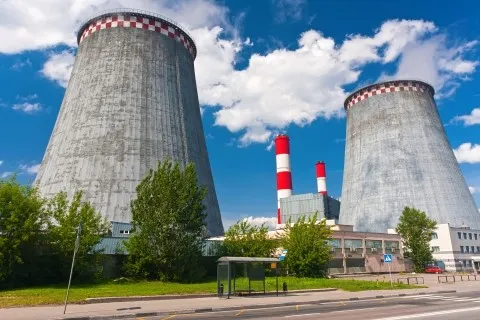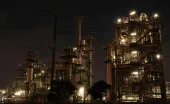
Taiwan pushes for nuclear phase-out despite opposition
The decommissioning of the Chinshan units will continue, and the operating licences of the Kuosheng and Maanshan units will not be extended.
Taiwan’s nuclear phase-down policy is expected to continue for the time being despite arguments to terminate a provision of the country’s Electricity Act in May, a report by Fitch Solutions revealed.
In May 2019, the Legislative Yuan amended a provision of Taiwan’s Electricity Act which stipulated that all nuclear power generation facilities will cease to operate by 2025. This followed a referendum held in November 2018, where 59% of the electorate supported the measure to abolish it.
Also read: Taiwan kills provision on nuclear power phase-out by 2025
Another referendum proposal is also currently underway that would address the question of Taiwan's fourth nuclear power plant, the Lungmen Nuclear Power Plant, which has been stalled since 2014 due to public opposition at that time. Nuclear power supporters have now suggested to restart the project amidst rising concerns of power shortages, the report noted. The referendum is expected to be held in 2019, although no dates have been released.
“Our view is informed by the ongoing commitment by the existing DPP government to achieving a nuclear-free Taiwan,” Fitch Solutions said. “Following the results of the initial vote, numerous government officials have confirmed that the DPP’s phase-out plan will progress, including the Executive Yuan spokeswoman Kolas Yotaka and Lee Chun-li, deputy director general of the Bureau of Energy at the Ministry of Economic Affairs, and this was reflected in the new energy reform plan released in January 2019.”
Also read: Revised renewables rules get go-ahead in Taiwan
In February 2019, it was also announced by the Ministry of Economic Affairs, Shen Jong-chin, that the decommissioning of the Chinshan units will continue, and the operating licences of the Kuosheng and Maanshan units will not be extended.
“The current licensing schedules align with our view, as they only enable Taiwan's nuclear reactors to operate until 2025 at the latest. At present, we forecast nuclear-powered generation to fall from an estimated 11.5% of the total power mix in 2018 to 0% in 2025, with Taiwan's reliance on thermal fuels and non-hydro renewables to increase to make up for the shortfall in generation,” Fitch Solutions highlighted.
Meanwhile, the report noted that there is limited policy visibility surrounding any progress on operating license extensions, particularly with an upcoming election in 2020, which could see a pro-nuclear KMT come into power. “The DPP's poor performance in the November local elections leaves it in a tough spot leading up to the 2020 General Elections, in which we believe the nuclear debate will become a prominent theme.
However, the report’s authors also noted that a valid nuclear licensing extension usually requires significant administrative time to process.
“Should the nuclear reactors successfully get extended operating permits and remain online, we highlight that this will likely take a hit on thermal generation facilities, particularly for coal, amidst growing concerns about pollution. Notably, the Taiwanese population has previously voted to curb coal-fired power growth in the market in 2018,” Fitch Solutions said.



















 Advertise
Advertise







